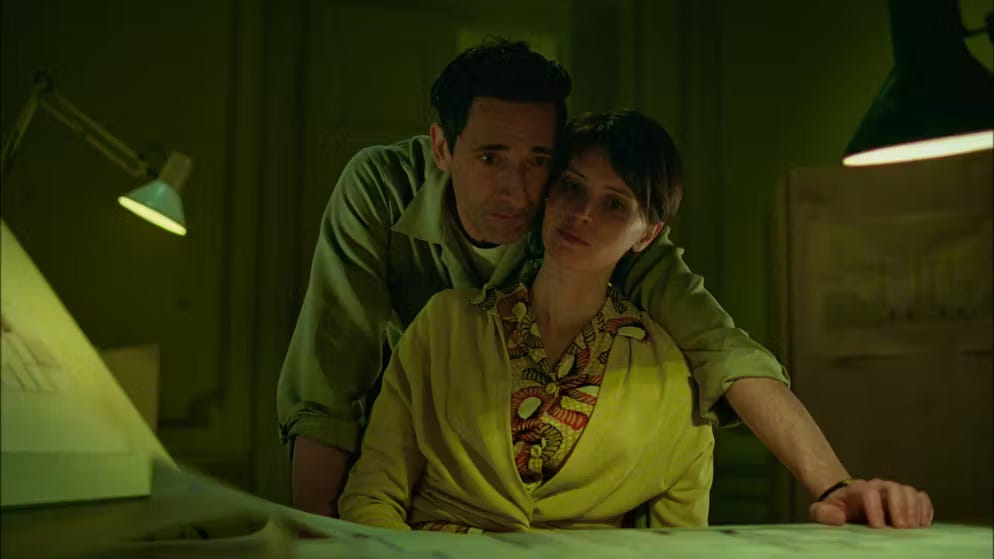Should Adrien Brody's AI vocal boost in 'The Brutalist' hinder his Oscar chances?
How much different than makeup is an aided accent?
The old joke hasn’t lost steam. Ugly yourself up for a role in Hollywood and find your way to the Academy Awards. It’s not a guarantee to be nominated or win for applying heavy prosthetics to an actor, but the cause certainly helps the audience’s distortion. Gary Oldman and Charlize Theron won Oscars for playing people who looked NOTHING like them, which is a big part of the mystique of acting.
Physical attributes, like facial restructuring or additional weight, are a common ploy in climbing into a character. Look at the lengths that Brendan Fraser went to for The Whale, which he also won the Oscar for last year. If Brendan Fraser had tried to play an obese man without putting on prosthetics, perhaps the Oscar wouldn’t go to him. Maybe it would due to the level of dedication that a huge weight gain brings to a role.
What about voice help? While a team of makeup artists and latex appliances can take a movie star deep into character, should they get vocal help? Brady Corbet’s The Brutalist, a heavy favorite for many Academy Awards including Brody’s performance as a Hungarian Jew architect who finds fame and horror in his American plunge post-World War II, has come under fire for using AI to enhance Brody’s accent. Respeecher was the company used, and it was done to perfect the complex Hungarian accent. It was done for Felicity Jones’s accent as well in the film.
Actor Ronnie Blevins took to Facebook to criticize the usage, saying he adores Brody yet has to concede that this advantage was too much to leave him in the consideration for Best Actor. There’s merit to that statement, due to the fact that AI is something that will slowly but surely creep into the Hollywood landscape via facial and vocal recognition. One would be remiss not to include a level or hint of jealousy in the claims, since it’s as much of a dog eats dog game as it is a collaborative industry.
What’s my take?
don’t hate the idea of AI tweaking heavy accents in films, but handing an award to Brody for a performance that couldn’t be performed with a voice coach isn’t the best look. I can sit here and praise Tom Hardy’s voice work as Bane in Dark Knight Rises, but giving him an award for the performance would have been unfit. The same can be said for Gina Carano in Steven Soderbergh’s Haywire, where the actress’s voice was enhanced. A unique accent wasn’t the issue there; Soderbergh wanted a different voice for the character who still had the martial arts ability and physical attributes of Carano.
There’s a level of dedication for an actor or actress to convincingly adjust or change their voice for a role. Someone with an Irish or New Zealand accent doing an American role can find it difficult to nail for the entire running time, but there are no enhancements. In Molly’s Game, you can notice Idris Elba’s British accent roll out on occasion while playing an American lawyer and it’s not distracting. I’d take that over voice enhancement technology be used in an award-caliber role.
Brody will most certainly be nominated, but I doubt he wins the award. This kind of thing does deter a lot of voters, many of whom are actors themselves or heavily involved with the process. He gave an incredible performance, but it’s different if help was given. Vocal enhancements sit on a higher level of conflict than a mere fat suit or a new set of eyebrows. Brody was my top pick, but now it will be Colman Domingo for Sing Sing. He didn’t receive any vocal (or makeup for that matter) assists. There’s extra merit in that.
What are your thoughts? Would you cast a vote for Brody if you knew AI helped his accent in key scenes? Thanks for reading and stay healthy out there.




